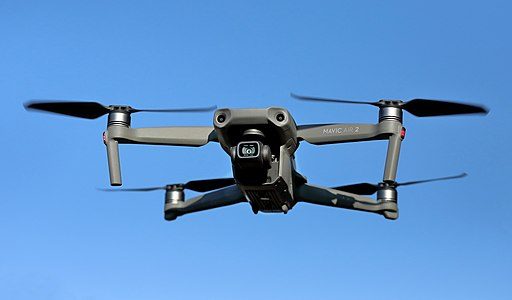Chinese Drone Manufacturer Expresses Concerns Over Security and Process Provisions in Proposed Law
Background on NDAA Section 1709
The FY 2025 National Defense Authorization Act (NDAA) includes Section 1709, which seeks to evaluate potential risks posed by certain Chinese-manufactured drones. This section mandates a national security agency to assess the risks of communications and video surveillance equipment from companies such as DJI and Autel Robotics within a year of the NDAA’s enactment.
If no determination is made, the legislation automatically places the equipment on the FCC’s Covered List, barring their operation on FCC-regulated bandwidth.
DJI Statement on NDAA FY25 Proposed Legislation
DJI, the world’s largest drone manufacturer, has issued a statement expressing concerns over the NDAA’s approach. A spokesperson for the company said:
“We are closely monitoring developments in Congress. While it is too early to provide detailed comments, as the NDAA still awaits a vote, the current text raises several initial concerns:
Chinese drones are singled out for scrutiny and the current text does not designate a specific agency to undertake the required study. We call for the agency tasked with this work to be technical in nature in order to ensure the assessment is evidence-based.”
Concerns Over Process and Fairness
The spokesperson highlighted potential issues with the automatic inclusion of DJI and Autel products on the FCC Covered List if no agency undertakes the required assessment:
“If no agency conducts a study to determine risk, the proposed legislation automatically adds DJI and another Chinese manufacturer to the FCC’s Covered List. This means that DJI would be prevented from launching new products in the US market through no fault of its own, but simply because no agency chose to take on the work of studying our products.”
DJI also criticized the lack of a provision for due process, calling for transparency and fairness in any audits:
“There is no provision for any right of reply or due administrative process. If the NDAA passes with these provisions included, we call on a relevant technical intelligence agency to undertake an audit of our products, and we ask for a fair right of reply to any findings.”
Commitment to Security and Market Competition
DJI reaffirmed its dedication to addressing security concerns and maintaining its U.S. market presence:
“DJI reaffirms its commitment to the U.S. market and our customers. Since 2017, DJI has proactively submitted its products to regular independent security audits and expanded the range of built-in user privacy controls in our consumer and enterprise drones.”
The company underscored its support for broader initiatives aimed at improving security and competitiveness across the industry:
“We support initiatives aimed at enhancing competitiveness and strengthening drone security, provided they are grounded in fairness, apply to the industry as a whole, and [are] driven by technological considerations – not country of origin. Ensuring that drone operators have the freedom to choose the most reliable platforms for their operational needs is essential for fostering innovation and maintaining a competitive industry, both now and in the long term.”
Broader Industry Implications
Section 1709 reflects growing concerns among U.S. lawmakers about potential national security risks associated with Chinese drones. While some drone industry stakeholders support the legislation, this provision – based upon the Countering CCP Drones Act – has raised significant concerns among service providers and operators who rely on Chinese-manufactured drones for public safety, infrastructure inspection, and other critical services. While US drone manufacturers are developing rapidly, there are currently few non-Chinese manufactured options at price points below $2,000. These difficulties have led some industry groups to rally against legislation which could limit the operation of Chinese drones, while others like AUVSI have emphasized the need to balance security with operational realities, giving operators time to diversify their fleets.
For more information on DJI, visit DJI. Learn about Autel Robotics at Autel Robotics
Want DRONELIFE news delivered to your inbox every weekday? Sign up here.
Read more:
- FY 2025 NDAA Conference Text: What Happened with the Countering CCP Drones Act
- NDAA Passed the House: What That Means for the Countering CCP Drones Act, and What Comes Next
- DJI Sues Pentagon Over Chinese Military Listing: Ongoing Tensions Impact Drone Industry
- What We Know About the DJI Customs Issue
Miriam McNabb is the Editor-in-Chief of DRONELIFE and CEO of JobForDrones, a professional drone services marketplace, and a fascinated observer of the emerging drone industry and the regulatory environment for drones. Miriam has penned over 3,000 articles focused on the commercial drone space and is an international speaker and recognized figure in the industry. Miriam has a degree from the University of Chicago and over 20 years of experience in high tech sales and marketing for new technologies.
For drone industry consulting or writing, Email Miriam.
TWITTER:@spaldingbarker
Subscribe to DroneLife here.
